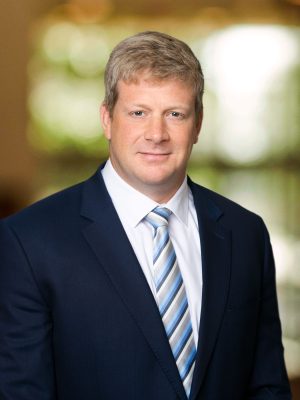Recently, CompEx spoke with Andrew Bellis, chairman of the CompEx Technical Advisory Council (TAC) and industry expert having spent over 25 years in the upstream, midstream and downstream oil and gas sectors to learn more about how he got to where he is today and his experience with the CompEx scheme along the way.
Early background and beginnings in the industry
Born in Chester, Andrew used to visit his Grandma in Huddersfield via the M56, and it was during these journeys that his interest in the industry was sparked – by nothing other than the Stanlow Refinery! Though at the time he was unsure of what the site was, he was in awe of the scale every time he drove past and knew instantly this was something he wanted to be involved in when he was older.
Fast forward some years, and Andrew had graduated in Chemical Engineering from the University of Wales and was well on his way into some impressive roles working for national construction and international gas companies. He stayed in these roles for over 10 years and travelled all over the world, building hydrogen plants and sizeable air separation units.
Andrew had always been keen to work on bigger projects, so changed gears and went to work for international contractor, McDermott. Whilst at McDermott, Andrew worked on a natural gas project called SCPX in Georgia, South Caucuses, where he was an engineering manager. SCPX is a mega project which takes gas from the oil and gas reserves in the Caspian Sea through Azerbaijan, across Georgia, all the way through Anatolia, and finally plugs into the European gas network in Italy.
Having delivered these projects, Andrew’s role was to work with the construction team to ensure these facilities were safely started.
Working with the TAC & the importance of CompEx
Gaining recognition for his impressive contribution to mega projects such as SCPX and his work on a portfolio of over 100 plants across Europe, Andrew was asked to join the TAC as chairman in April 2018. This was a role Andrew was delighted about, having worked with IEC and NFPA standards throughout his entire career.
Through his role with the TAC, Andrew was also excited to begin working more closely with CompEx, telling us: “Having standards such as the IEC 60079-14 and IEC 60079-17 are great, but then what you need is people who are competent in working to these standards. How do I know that I’m meeting the standards? That’s where CompEx comes in.
“In the start-up phase of SCPX, we were reliant on the people that had successfully inspected the construction work so that we could safely commission the plant. Without these people, we would be left uncertain and wouldn’t proceed. Having people that understand the relevant international standards that manage significant risk is key to what engineers do. CompEx gives you the certainty that those people, wherever they are in the world, are competent in that standard – ensuring that the project can be delivered safely.”
Joining the TAC as chairman means Andrew has had the opportunity to work with a number of industry heavyweights with extensive experience and technical know-how. The members of the TAC represent a wide range of industrial sectors and provide essential advice and guidance to ensure that CompEx qualifications meet the exacting requirements for customers around the world. CompEx then uses this feedback from the TAC to amend and evolve the qualifications when necessary and in line with change to international standards. Andrew tells us: “Often times, you’ll hear people saying that health and safety regulations are getting in the way, slowing us down, that it’s just form filling and box-ticking. There are aspects of health and safety that feel this way, but CompEx is not like that.
“The members of the TAC are focused on making sure that the work is done safely and to a standard that you can rely on. They are focused on how they apply the standard to measure someone’s competence. CompEx evolves with the standard to ensure that ultimately, it delivers for industry and that at the end of the day both the workers and the public can go home safely.”
To see our full list of personal competency qualifications and to find out more about our network of independent training and assessment centres, click here.

Andrew Bellis
